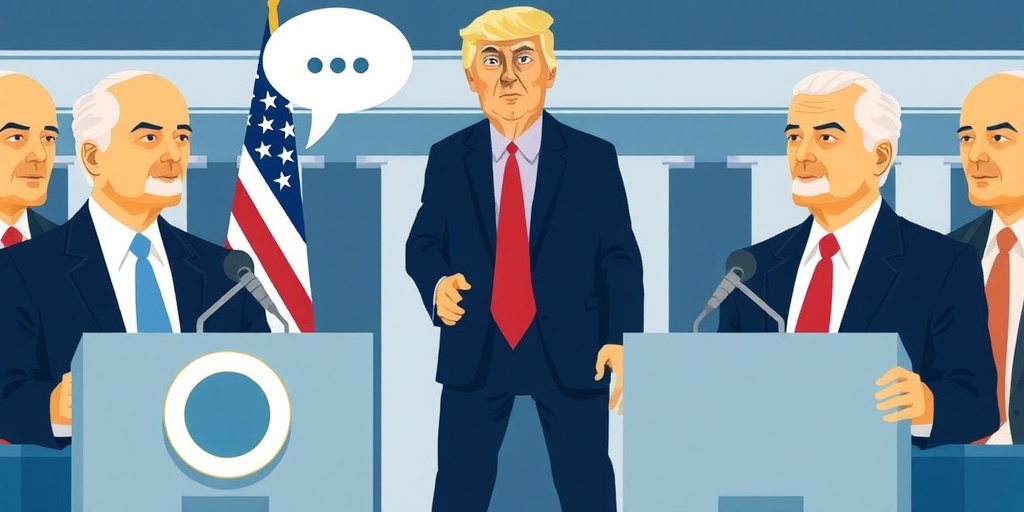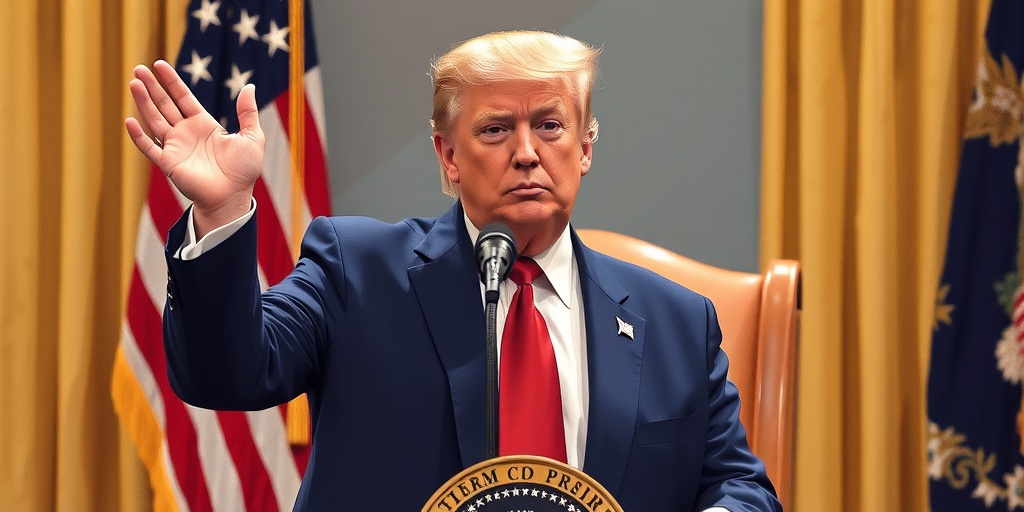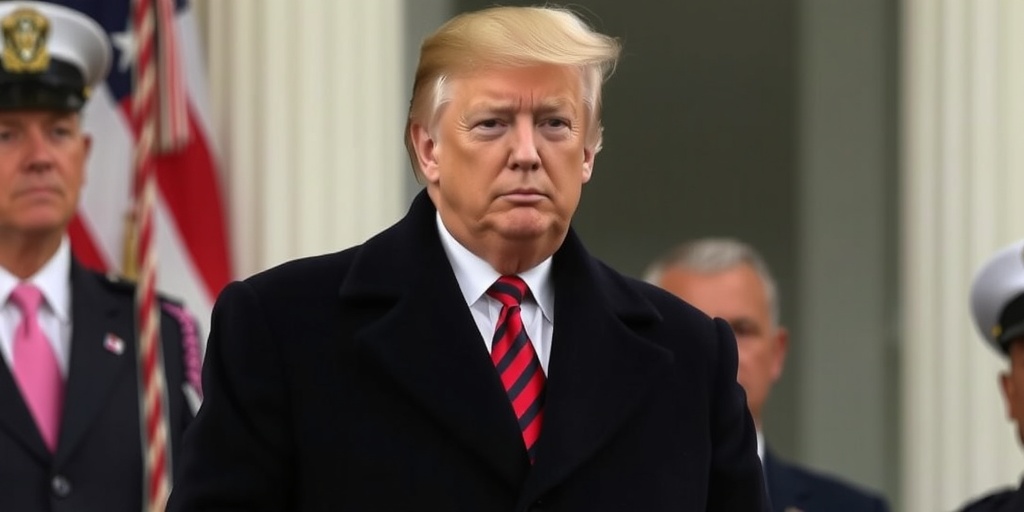Now Reading: Trump’s Conflict of Interest Risks: An Illustrated Overview
-
01
Trump’s Conflict of Interest Risks: An Illustrated Overview
Trump’s Conflict of Interest Risks: An Illustrated Overview

Title: President-elect Donald J. Trump Faces New Business Ventures and Potential Conflicts of Interest
As President-elect Donald J. Trump prepares to take office again, the business landscape he enters is significantly different from the one he navigated during his first term. Trump’s vast array of business interests, including new ventures that have emerged since the 2020 election, raises substantial concerns regarding potential conflicts of interest. Critics, ethics experts, and political opponents have voiced their apprehensions, asserting that these new business endeavors could complicate his governance and overshadow his presidential duties.
Throughout his first term, Trump was already under scrutiny for the overlap between his role as president and his private business dealings. With properties such as Trump Tower and various golf courses, there were fears that foreign governments and lobbyists could influence presidential actions by patronizing his businesses, effectively blurring the lines between public responsibility and personal profit. As the nation turns its attention to his upcoming presidency, experts are worried that the situation may become even more complicated.
One of the key areas of concern involves Trump’s plans to expand his brand into new sectors. Reports indicate that he is exploring ventures in real estate development, hospitality, and even media, seeking to capitalize on his polarizing yet significant presence in American politics. The prospect of launching new products, such as a branded line of merchandise or a new media outlet, has triggered alarms among watchdog organizations, which worry about the implications for transparency and governance.
Moreover, Trump’s international business dealings could become a flashpoint for criticism in his second term. There are indications that he intends to broaden his business footprint overseas, which could lead to ethical dilemmas, especially when foreign entities seek to curry favor with the U.S. government. This potential entanglement in international business affairs poses risks of favoritism, where Trump’s policies may be shaped to benefit his businesses rather than the American public. Such scenarios could lead to significant legal and ethical ramifications, particularly in an era where partisanship is rampant and public trust in government institutions is fragile.
In addition to Trump’s expanded global business ambitions, his ongoing ties with previous affiliations, such as the Trump Organization, continue to raise eyebrows. The organization has faced a slew of legal challenges and controversies, which may affect Trump’s ability to navigate conflicts of interest effectively. Without a clear and strict separation between his professional pursuits and presidential responsibilities, there is a strong possibility that Trump could be drawn into legal disputes that distract from his policy agenda and governance.
The transition to the new administration is expected to amplify scrutiny from watchdogs and advocacy groups dedicated to ensuring ethical government practices. Organizations like Citizens for Responsibility and Ethics in Washington (CREW) have ramped up their monitoring efforts, prepared to challenge any actions they deem to be unethical or motivated by self-interest. The potential for litigation around Trump’s business dealings is more pronounced, as critics may leverage legal avenues to contest any perceived misuse of presidential power for personal gain.
Furthermore, the typical ethics rules that apply to sitting presidents regarding conflicts of interest and financial disclosures may not fully mitigate concerns about Trump’s businesses. Unlike previous presidents who have placed their assets in blind trusts, Trump has chosen to maintain some level of involvement with his business operations, stating that he has delegated control while still retaining ownership. This arrangement raises foundational questions about accountability and transparency in his dealings.
As Trump embarks on this new chapter, the challenge of balancing his business interests with his responsibilities as a public servant will be monumental. The potential for conflicts of interest is not merely a theoretical issue but a pressing concern that could resonate throughout his presidency.
Political analysts and scholars will be watching closely to see how Trump addresses these challenges. The interplay between his ongoing business ventures and the demands of the presidency could ultimately define his second term. Whether he will adhere to ethical norms or prioritize personal financial interests remains to be seen. As the nation braces for Trump’s return to the White House, the implications of his business empire loom large, setting the stage for a presidency that will likely grapple with accountability and transparency.
In conclusion, Donald J. Trump’s new business ventures bring with them a host of potential conflicts of interest, amplifying the concerns raised during his first term. As he prepares to assume the presidency once again, the path ahead promises to be fraught with challenges, not only for Trump but for the democratic institutions tasked with overseeing the conduct of elected officials. The importance of ethical governance in maintaining public trust is as critical as ever, and how Trump navigates these complex issues will be a defining feature of his administration.
Stay Informed With the Latest & Most Important News
Previous Post
Next Post
-
 01New technology breakthrough has everyone talking right now
01New technology breakthrough has everyone talking right now -
 02Unbelievable life hack everyone needs to try today
02Unbelievable life hack everyone needs to try today -
 03Fascinating discovery found buried deep beneath the ocean
03Fascinating discovery found buried deep beneath the ocean -
 04Man invents genius device that solves everyday problems
04Man invents genius device that solves everyday problems -
 05Shocking discovery that changes what we know forever
05Shocking discovery that changes what we know forever -
 06Internet goes wild over celebrity’s unexpected fashion choice
06Internet goes wild over celebrity’s unexpected fashion choice -
 07Rare animal sighting stuns scientists and wildlife lovers
07Rare animal sighting stuns scientists and wildlife lovers




















